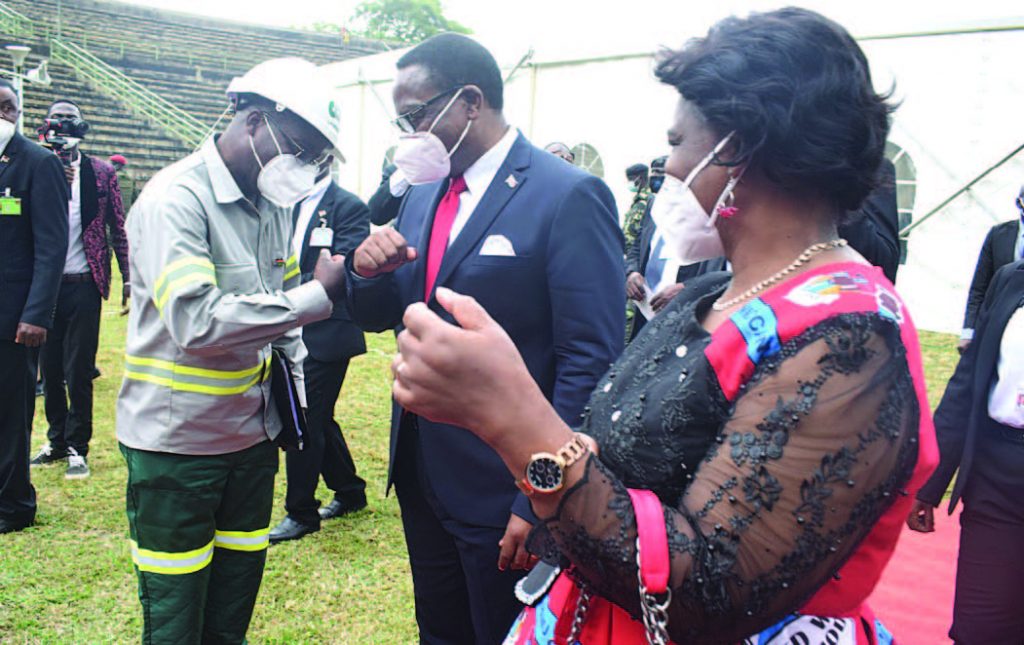Chakwera u-turns on labour law
- Tells trade unions he will review matter
- MCTU suspends planned protests
Barely a week after Parliament passed two labour laws amid protests from opposition parties and trade unions, President Lazarus Chakwera has indicated he will not sign the Bills into law .
Malawi Congress of Trade Union’s (MCTU) secretary general Madalitso Njolomole told journalists in Lilongwe after meeting the President yesterday that he told them the Labour Relations (Amendment) Bill 2021 which is restricting workers’ rights to strike will be referred back to Parliament.

He said: “The President has indicated that he will not accept a Bill that did not go through proper consultations.
“The President has assured us that the Bill will not be assented to [signed into law] until thorough consultations are done. As MCTU, we are now satisfied that the concerns we had are being addressed.”
Njolomole said that in view of the President’s assurance, the union has put on hold planned protests scheduled for today pending further dialogue on the matter.
On his part, MCTU president Charles Kumchenga said Chakwera was accompanied by Deputy Minister of Labour Vera Kamtukule and Minister of Homeland Security Richard Chimwendo Banda.
MCTU officials said the invitation to State House came yesterday morning as the trade unions umbrella body was preparing for today’s demonstrations in Mzuzu, Zomba, Lilongwe and Blantyre.
In a separate interview, presidential press secretary Brian Banda said the President acknowledged the trade unions’ concerns and assured that he would review the matter.
“I can confirm that the meeting took place. There are several stages Bills go through. The President has heard their concerns and he will review the matter when the Bill reaches his desk,” he said.
MCTU official Jessie Ching’oma said the key demand of MCTU is the removal of the “no-work no-pay” concept which is mandating employers to deduct workers’ pay after three days of strike.
“That definition which came out in Parliament is misleading. We shouldn’t use it to abuse people. Workers can be abused so that they abscond from work and then the employer withholds their pay. It’s a tool for oppression,” she said.
The President’s position comes barely 24 hours after Kamtukule on Tuesday told journalists in Lilongwe that the Bill was presented in Parliament after wide consultations.
She said contentious provisions such as the “no-work no-pay” concept were approved by the International Labour Organisation (ILO).
Kamtukule said: “It should be noted further that consultations do not necessarily have to result in consensus in order for government to proceed to take a decision on any given issue.”
However, MCTU officials said yesterday the concepts the Bill highlights do not reflect the local realities.
Ching’oma said: “ILO guidelines also ask for countries to look at the national context, socially, economically and politically. You cannot compare the working environment for Malawi and other countries. This doesn’t mean people will be going willy-nilly on strike. Both employer and employees have to give honest dialogue a chance.”
On Tuesday, MCTU snubbed efforts by Ministry of Labour to meet the union on the issue.
Opposition Democratic Progressive Party and United Democratic Front legislators on July 8 walked out of Parliament in protest against the Labour Relations Act (Amendment) Bill and the Employment Act (Amendment) Bill.
In a related development, the International Trade Union Confederation (ITUC) has written Chakwera asking him not to sign the amendments into law until a Tripartite Labour Advisory Council undertakes thorough consultations.
In a letter dated July 14 2021 co-signed by ITUC-Africa general secretary Kwasi Adu-Amankwah and ITUC general secretary Sharan Burrow, the confederation expressed reservations with the provisions, saying they were limiting the rights of workers.
Before being tabled in Parliament, Bills go through a process that includes approval at Cabinet level.





